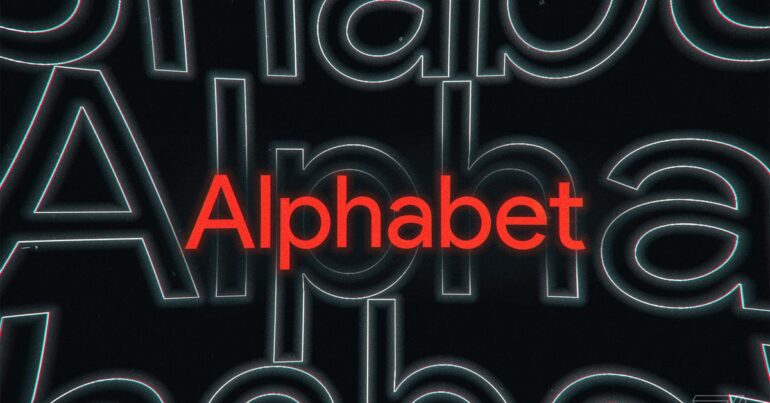- Alphabet, Google’s parent company, is on the verge of achieving a $2 trillion market capitalization.
- This milestone is fueled by Google’s innovations in generative artificial intelligence (AI).
- Google’s stock has surged, with Class A and Class C shares hitting new highs.
- The company’s market cap has soared by over 15% this year and 51% over the past twelve months.
- Recent innovations include a groundbreaking AI chip and an Arm-based CPU, which are challenging industry giants like Nvidia, Microsoft, and Amazon.
- Google’s Cloud TPU v5p, capable of training large language models three times faster than its predecessor, is a game-changer in AI development.
- The broader context reveals a competitive AI arms race among tech giants like Nvidia and Alphabet.
- Google’s success underscores the transformative potential of AI and innovation in shaping the future of business.
Main AI News:
Google’s parent company, Alphabet, stands on the precipice of a remarkable milestone in the financial world: a market capitalization of $2 trillion. This ascent is propelled by the relentless march of innovation, particularly in the realm of generative artificial intelligence (AI). On Thursday, the tech juggernaut’s stock soared, with both Alphabet Class A and Class C shares scaling new heights, marking gains of 1.8% and 1.7% respectively.
The trajectory of Alphabet’s stock has been nothing short of spectacular, surging more than 15% since the beginning of the year and an astonishing 51% over the past twelve months. As of Thursday afternoon, the company’s market capitalization teetered tantalizingly close to the $2 trillion mark, standing at a staggering $1.99 trillion.
This surge is underpinned by a relentless commitment to innovation. Earlier this week, Google unveiled its latest breakthroughs in cloud computing and artificial intelligence, signaling its intent to dominate the technological landscape. Among the highlights were a groundbreaking AI chip poised to rival industry stalwart Nvidia and an Arm-based CPU poised to challenge the hegemony of Microsoft and Amazon.
At the forefront of Google’s innovation drive is its latest AI chip, the Cloud TPU v5p. Introduced in December alongside its AI chatbot Gemini, this cutting-edge TPU (tensor processing unit) promises to revolutionize the field of AI. Google boasts that the Cloud TPU v5p can train large language models (LLMs) nearly three times faster than its predecessor, the TPU v4, a development with profound implications for the advancement of AI-driven applications such as ChatGPT.
Speaking at the annual Google Cloud Next conference in Las Vegas, Google CEO Sundar Pichai heralded these advancements as transformative. “Now in their fifth generation, these advancements [to Google’s TPUs] have helped customers train and serve cutting-edge language models,” he declared, underscoring Google’s commitment to pushing the boundaries of AI innovation.
Yet Google’s strides in AI are not made in isolation but within the broader context of a burgeoning AI arms race among tech titans. Nvidia, long hailed as the preeminent supplier of AI chips, faces increasing competition as companies like Alphabet seek to develop proprietary AI hardware, reducing dependency on external suppliers.
In this era of technological innovation, Google’s ascent to a $2 trillion market capitalization serves as a testament to the transformative power of AI and the enduring allure of innovation in shaping the future of business and society.
Conclusion:
Google’s impending $2 trillion market capitalization underscores its dominance in the tech landscape, driven by groundbreaking AI innovations. This milestone signals a new era in which AI-powered technologies will play an increasingly central role in shaping market dynamics and business strategies. As Google continues to push the boundaries of innovation, competitors must adapt swiftly to remain competitive in an evolving landscape.

